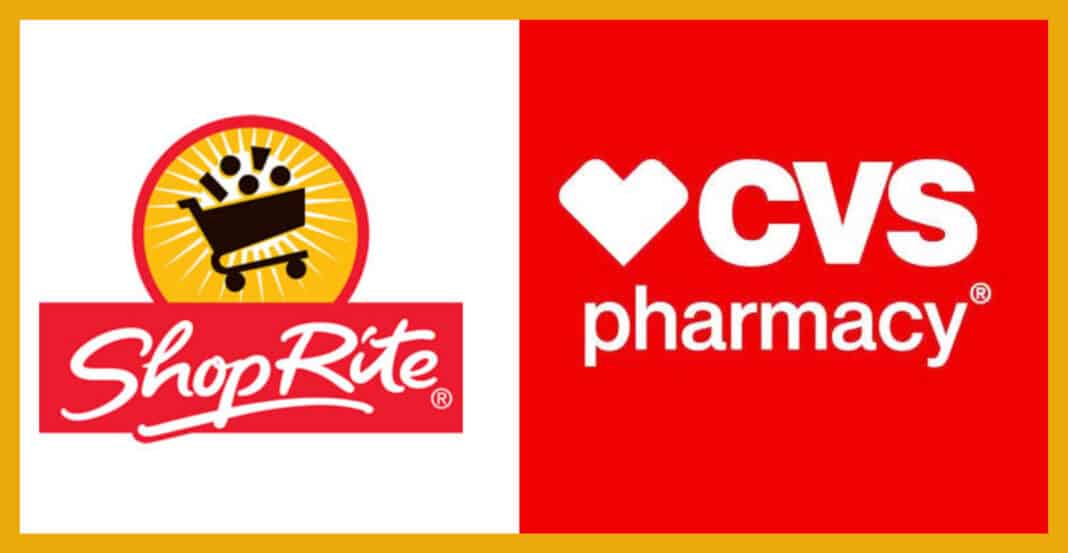Over the past seven years, supermarkets that operate in-store pharmacies have struggled with profitability and customer counts as third-party organizations (PBMs – pharmacy benefit managers), prescriptions delivered by mail and lack of expanded services (in-store clinics, increased patient counseling) and reimbursement issues have adversely impacted their businesses.
So, it wasn’t totally surprising that Wakefern Food Corp. announced on January 25 that it would be closing pharmacies at 62 ShopRite stores in New Jersey, New York, Pennsylvania, Connecticut, Delaware and Maryland. At presstime, almost all 62 stores have been closed with several retailers telling us they plan to repurpose those vacated areas into new platforms including broader spaces for the company’s “ShopRite From Home” e-commerce platform, foodservice offerings featuring well-known local brands and an expansion of beer &wine departments (where st te law allows). In a related announcement, national drug chain leader CVS said it would acquire the customer prescription files for those 62 units. Neither side disclosed the price paid for those files.
ShopRite will remain in the supermarket pharmacy business as 147 other ShopRite units will continue to operate pharmacies. Those stores will continue to act as a provider of COVID-19 vaccines. Sources told us that ShopRite’s decision to close more than 40 percent of its pharmacies was made strictly on pharmacy volume and profitability.
While Wakefern did not disclose how many pharmacists are affected by the announcement, clerks (unionized jobs) will be offered positions at their current or nearby ShopRite stores. As for the pharmacists and technicians, CVS said that they will have an opportunity to interview with the Woonsocket, RI-based chain.
Most of the ShopRite pharmacies that will close are located less than a mile from an existing CVS store.
Several sources told us that CVS and parent firm Wakefern had been in discussions for about a year and ShopRite members had the option of selling the scripts to CVS or keeping their pharmacies open. We’re told that the price that CVS offered was based on a formula centered around number of prescription files per store.
“This isn’t just a ShopRite problem, it’s an entire supermarket industry problem and also impacts other retailers who operate drug stores that don’t have thousands of stores or control a PBM,” said one retailers whose been impacted by declining pharmacy sales. “Every year, our sales and profits decrease because we’re at the bottom of the totem pole. We just don’t have the proper scale to compete effectively anymore and now that Amazon is entering the business it’s only going to become more difficult.”
The closed pharmacy locations are: East Harford, CT; New London, CT; Norwich, CT; Wallingford, CT; Waterbury, CT; Bear, DE; Wilmington, DE (3-Rocky Run Pkwy.; Newport Pike; S. Walnut St.); Silver Spring, MD; Bayonne, NJ; Belleville, NJ; Brooklawn, NJ; Carteret, NJ; Cherry Hill, NJ (2-Marlton Pike; E. Evesham Rd.); Emerson, NJ; Hackensack, NJ; Hillsdale, NJ; Hoboken, NJ; Jersey City, NJ; Kearny, NJ; Lodi, NJ; Lyndhurst, NJ; Moorestown, NJ; North Bergen, NJ; Northvale, NJ; Oakland, NJ; Palisades Park, NJ; Passaic, NJ; Wallington, NJ; Wayne, NJ; West Milford; NJ; Chester, NY; Garnerville, NY; Hauppauge,NY; Kingston, NY; Middletown, NY; Mohegan Lake, NY; New City, NY; New Rochelle, NY; Plainview, NY; Poughkeepsie, NY; Stony Point, NY; West Nyack, NY; White Plains, NY; East Norriton, PA; Eddystone, PA; Glenolden, PA; Fairless Hills, PA; Hatfield, PA; Philadelphia, PA (7 – N. 52nd St.; E. Olney Ave.; Fox St.; Island Ave.; Oxford Ave.; Ridge Ave.; Roosevelt Blvd.) Yardley, PA. According to the National Association of Chain Drug Stores (NACDS), supermarkets account for 14 percent of retail pharmacy prescriptions and the number of grocery stores that operate pharmacies has declined in each of the past three years.
Two years ago, Shoppers Food, a unit of UNFI and based in Bowie, MD closed all 30 of its pharmacies (and sold the scripts to both CVS and Walgreens). Last year, regional grocer Lund & Byerlys, based in Minneapolis, MN, closed all 14 of its pharmacies (selling the scripts to Walgreens) and in 2015, CVS assumed control of more than 1,600 pharmacies at Target Stores, paying $1.9 billion for those locations.


